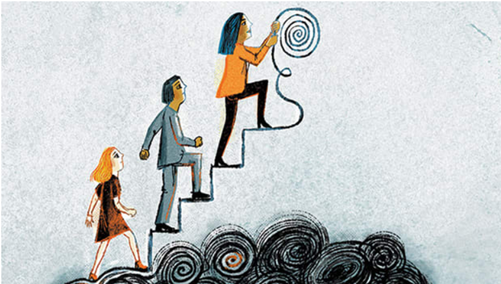Leading with intercultural agility - Interactive Virtual Intercultural Leadership Workshop Programme on 28 th & 29 th November 2022
Discussion details
Acting with intercultural agility allows leaders to grow and to read culturally diverse situations on the fly as it allows them to anticipate, correctly interpret and adjust quickly where and when necessary. This skill and understanding are not only it helpful when acknowledging and working with people from different country cultures but also those from different professions, ages, backgrounds, religions, and any of the cultural dynamics that exist in teams of the European Commission.
This 1½ day Intercultural Leadership Programme uses real-life examples that bring the work to life. We enable leaders to start developing their ‘intercultural radar’, so they can ‘scan’ situations and be aware of the different cultural aspects at play in their teams.
- On 28 th & 29 th November 2022
- To all Heads of Section
- This programme is limited to facilitate deep work. For the HQ-based managers, we provide an assessment that will help them evaluate and identify the optimal InCA programme to join.
We look forward to working with you. EU LEARN (info and registration for workshop)
More info:
Leading with intercultural agility

‘Intercultural agility is an important part of fostering cohesion and a constructive, safe working culture internally. It is also vital when looking outward, focusing on partnership and effectiveness, and therefore directly impacting results.’
Helen Blake & Karolina Ehretsmann Thouvenin , Intercultural Approach Programme (InCA) experts
‘Why are intercultural leadership and intercultural agility important? What will they do for me as a leader?’
We are often asked these questions. Before answering directly, perhaps some definitions are helpful. Intercultural leadership is the ability to influence and engage people from all cultures. Intercultural agility allows the leader to move with confidence between different cultural settings and contexts in a complex environment.
Having intercultural agility allows leaders to grow. Leaders become more responsive when dealing with the volatility, uncertainty, complexity and ambiguity (VUCA) of today. Not only is it helpful when acknowledging and working with people drawn from different country cultures but also those from different professions, ages, backgrounds, religions, and any of the cultural dynamics that exist in teams of the European Commission. Intercultural agility is an important part of fostering cohesion and a constructive, safe working culture internally. It is also vital when looking outward, focusing on partnership and effectiveness, and therefore directly impacting results.
‘What will these skills do for me as a leader?’
Karolina and I have the privilege of working with leaders from all cultures, across many different international organisations. We find that interculturally skilled leaders make a huge difference to the success of their teams. After several years of delivering InCA* laboratories in various delegations, we have observed that having interculturally agile leaders is an essential part of the condition for success in collaborating better and differently with internal and external stakeholders. Intercultural leadership enables team leaders to actively guide, define and enable a healthy and productive working culture.
‘Who can join the InCA Programme Workshops?’
An Intercultural development programme is now available to leaders within all areas of the European Commission, notably those who are dealing with international partnerships. This 1½ day Intercultural Leadership Programme uses real-life examples that bring the work to life. We enable leaders to start developing their ‘intercultural radar’, so they can ‘scan’ situations and be aware of the different cultural aspects at play in their teams. As one of the senior leaders on our last workshop said, “Intercultural leadership means actively doing something, not just being intellectually aware of it. It’s about the leader creating the conditions for openness and effective working. This programme has opened my eyes and helped me significantly in my role.”
Article made by Karolina Ehretsmann Thouvenin and Helen Blake (InCA intercultural experts, executive coaches, and consultants to leaders around the world, bringing insight and experience to cultural complexity).

Log in with your EU Login account to post or comment on the platform.